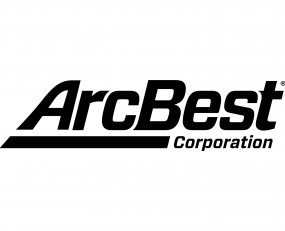
ArcBest is still finding it difficult to cope with challenging trading conditions, according to its recent quarterly results.
The words used by president and chief executive Judy McReynolds in the quarterly announcement testify to economic weakness that “continued to impact our business, consistent with trends that began in the fall of 2015”.
“We are encouraged by the on-going stability in LTL pricing and by the positive reception our customers have to the expanding array of services we offer in helping them better manage their complex supply chain issues,” McReynolds added.
First quarter 2016 revenues stood at $621.5m, up 1.3% year-on-year on a reported basis, but were outpaced by the rise in its total cost base, which grew 3.1% to $630m in the first quarter, yielding a $9m loss at operating level. In comparison, EBIT a year earlier came in at $1.3m. Higher costs were mainly associated with handling additional shipments, the group noted.
A subdued performance was behind a net loss of $6.1m, or $0.24 per share, but excluding certain items, its first-quarter net loss was mildly lower at $0.23 per share.
On the bright side, its balance sheet remains relatively solid, although net cash balances are falling, with net debt rising to $68m from $47m on 31 December. Its cash flow statements clearly show that the group is carefully managing short-term liquidity and paying particular attention to working capital management.
Rising payables and falling receivables are moving in the right direction, and remain a key value driver, given that they greatly contributed to the rise in operating cash flow, up to $12.1m from $10.9m one year earlier.
Its free cash flow yield is negative, and ArcBest’s cash-burn rate was $1.2m in the first quarter, but it spent $2.6m on buybacks in Q1 (up 6% year-on-year) and $2m in dividends (up 26% year-on-year) – all of which suggest a certain degree of confidence among executives.
Freight Transportation, or ABF Freight, reported revenue of $439.5m compared to $441.2m in the same period last year, impacted by lower fuel surcharges attributable to the significant year-on-year decrease in fuel prices.
Tonnage per day decreased 0.9% year-on-year, while total billed revenues decreased 1.2% compared to the prior year reflecting lower fuel surcharges. Excluding fuel surcharge, the percentage increase on ABF Freight’s traditional LTL freight was in the low-single digits, the group said. The loss-making unit (-$9m from operations) was also hit by a $2.9m increase in workers’ compensation and casualty claims expense.
The smaller asset-light logistics division had revenues of $194.7m against $183.7m in first quarter of 2015.
The group stressed that “asset-light revenue equalled 31% of total consolidated revenue, compared to 29% during the same period last year”, although EBITDA came in at $4.9m, down 25% from $6.6m year-on-year.
Its valuation on the stock market has plunged 65% since early 2015, with its equity now worth less than $500m.
Source: Transport Intelligence, 25th May 2016
Author: Alessandro Pasetti